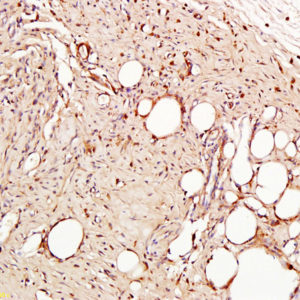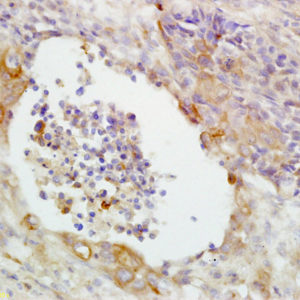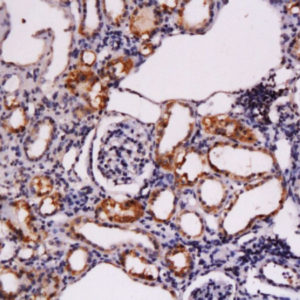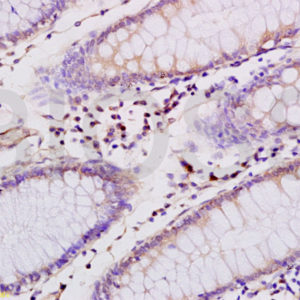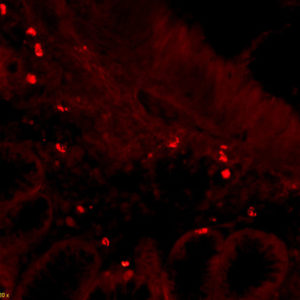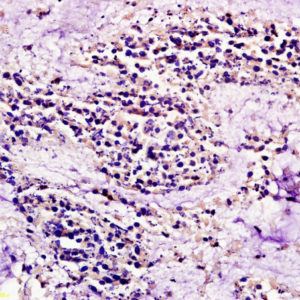-

- Home
- Shop
- Article
- About Us
- Contact Us
- Molecular Biology
- How to choose the right antibody
- Aflatoxin
- Vitamin K2
- Melatonin
- Introduction of ELISA Kits
- Food Safety Detection
- Food Safety
- Animal Disease
- Diagnosis
- Human ELISA
- Mouse ELISA
- Sheep ELISA
- Other ELISA
- Primary Antibody
- Second Antibodies
- Labeled Primary Antibody
- Labeled Secondary Antibody
- Small Molecular Antibody and Antigen
- Animal Disease Antibody and Antigen
- ELISA Test
- Rapid Test
- Diagnosis Antigen and Antibody
- Diagnosis Kit
Description
Background:Prostaglandins are produced by the metabolism of arachidonic acid. Prostaglandin E2 is one of the five physiologically significant prostanoids known. Its wide spectrum of physiologic and pharmacologic effects in various tissues is mediated through binding to the Prostaglandin E2 receptors (EP1, EP2, EP3 & EP4). These include effects on the immune, endocrine, cardiovascular, renal and reproductive systems as well as smooth muscle. It is also one of the most abundant of the prostanoid family in the brain where it plays an important role in many neural functions, particularly in newborn babies, and as a mediator of inflammation. Prostaglandin E2 signals through a family of G-protein coupled receptors known as EP receptors. There are 4 subtypes of EP receptors, known as EP1, EP2, EP3 and EP4. EP2 receptors are 358 amino acid proteins with a short third intracellular loop. EP2 receptors stimulate adenylyl cyclase by their coupling to Gs and do not undergo Prostaglandin E2 induced internalization. The EP2 receptors is involved with the contration and relaxation of smooth muscle tissue. These receptors are mainly localized in lung and placental tissues and in smooth muscle.
Host species/Isotype:Rabbit/IgG
Cross reaction: Human, Mouse, Rat
Immunogen: KLH conjugated synthetic peptide derived from human PTGER2.
Storage instructions:Store at -20℃ for one year. Avoid repeated freeze/thaw cycles. The lyophilized antibody is stable at room temperature for at least one month and for greater than a year when kept at -20°C. When reconstituted in sterile pH 7.4 0.01M PBS or diluent of antibody the antibody is stable for at least two weeks at 2-4°C.
Concentration:1mg/ml
Purity:affinity purified by Protein A
Clonality:Polyclonal
Molecular weight: 40kDa
Tested applications:
WB=1:500-2000
ELISA=1:500-1000
IHC-P=1:400-800
IHC-F=1:400-800
ICC=1:100-500
IF=1:100-500
Description
Background:Prostaglandins are produced by the metabolism of arachidonic acid. Prostaglandin E2 is one of the five physiologically significant prostanoids known. Its wide spectrum of physiologic and pharmacologic effects in various tissues is mediated through binding to the Prostaglandin E2 receptors (EP1, EP2, EP3 & EP4). These include effects on the immune, endocrine, cardiovascular, renal and reproductive systems as well as smooth muscle. It is also one of the most abundant of the prostanoid family in the brain where it plays an important role in many neural functions, particularly in newborn babies, and as a mediator of inflammation. Prostaglandin E2 signals through a family of G-protein coupled receptors known as EP receptors. There are 4 subtypes of EP receptors, known as EP1, EP2, EP3 and EP4. EP2 receptors are 358 amino acid proteins with a short third intracellular loop. EP2 receptors stimulate adenylyl cyclase by their coupling to Gs and do not undergo Prostaglandin E2 induced internalization. The EP2 receptors is involved with the contration and relaxation of smooth muscle tissue. These receptors are mainly localized in lung and placental tissues and in smooth muscle.
Host species/Isotype:Rabbit/IgG
Cross reaction: Human, Mouse, Rat
Immunogen: KLH conjugated synthetic peptide derived from human PTGER2.
Storage instructions:Store at -20℃ for one year. Avoid repeated freeze/thaw cycles. The lyophilized antibody is stable at room temperature for at least one month and for greater than a year when kept at -20°C. When reconstituted in sterile pH 7.4 0.01M PBS or diluent of antibody the antibody is stable for at least two weeks at 2-4°C.
Concentration:1mg/ml
Purity:affinity purified by Protein A
Clonality:Polyclonal
Molecular weight: 40kDa
Tested applications:
WB=1:500-2000
ELISA=1:500-1000
IHC-P=1:400-800
IHC-F=1:400-800
ICC=1:100-500
IF=1:100-500
Description
Background:Prostaglandins are produced by the metabolism of arachidonic acid. Prostaglandin E2 is one of the five physiologically significant prostanoids known. Its wide spectrum of physiologic and pharmacologic effects in various tissues is mediated through binding to the Prostaglandin E2 receptors (EP1, EP2, EP3 & EP4). These include effects on the immune, endocrine, cardiovascular, renal and reproductive systems as well as smooth muscle. It is also one of the most abundant of the prostanoid family in the brain where it plays an important role in many neural functions, particularly in newborn babies, and as a mediator of inflammation. Prostaglandin E2 signals through a family of G-protein coupled receptors known as EP receptors. There are 4 subtypes of EP receptors, known as EP1, EP2, EP3 and EP4. EP2 receptors are 358 amino acid proteins with a short third intracellular loop. EP2 receptors stimulate adenylyl cyclase by their coupling to Gs and do not undergo Prostaglandin E2 induced internalization. The EP2 receptors is involved with the contration and relaxation of smooth muscle tissue. These receptors are mainly localized in lung and placental tissues and in smooth muscle.
Host species/Isotype:Rabbit/IgG
Cross reaction: Human, Mouse, Rat
Immunogen: KLH conjugated synthetic peptide derived from human PTGER2.
Storage instructions:Store at -20℃ for one year. Avoid repeated freeze/thaw cycles. The lyophilized antibody is stable at room temperature for at least one month and for greater than a year when kept at -20°C. When reconstituted in sterile pH 7.4 0.01M PBS or diluent of antibody the antibody is stable for at least two weeks at 2-4°C.
Concentration:1mg/ml
Purity:affinity purified by Protein A
Clonality:Polyclonal
Molecular weight: 40kDa
Tested applications:
WB=1:500-2000
ELISA=1:500-1000
IHC-P=1:400-800
IHC-F=1:400-800
ICC=1:100-500
IF=1:100-500
Description
Background:Prostaglandins are produced by the metabolism of arachidonic acid. Prostaglandin E2 is one of the five physiologically significant prostanoids known. Its wide spectrum of physiologic and pharmacologic effects in various tissues is mediated through binding to the Prostaglandin E2 receptors (EP1, EP2, EP3 & EP4). These include effects on the immune, endocrine, cardiovascular, renal and reproductive systems as well as smooth muscle. It is also one of the most abundant of the prostanoid family in the brain where it plays an important role in many neural functions, particularly in newborn babies, and as a mediator of inflammation. Prostaglandin E2 signals through a family of G-protein coupled receptors known as EP receptors. There are 4 subtypes of EP receptors, known as EP1, EP2, EP3 and EP4. EP2 receptors are 358 amino acid proteins with a short third intracellular loop. EP2 receptors stimulate adenylyl cyclase by their coupling to Gs and do not undergo Prostaglandin E2 induced internalization. The EP2 receptors is involved with the contration and relaxation of smooth muscle tissue. These receptors are mainly localized in lung and placental tissues and in smooth muscle.
Host species/Isotype:Rabbit/IgG
Cross reaction: Human, Mouse, Rat
Immunogen: KLH conjugated synthetic peptide derived from human PTGER2.
Storage instructions:Store at -20℃ for one year. Avoid repeated freeze/thaw cycles. The lyophilized antibody is stable at room temperature for at least one month and for greater than a year when kept at -20°C. When reconstituted in sterile pH 7.4 0.01M PBS or diluent of antibody the antibody is stable for at least two weeks at 2-4°C.
Concentration:1mg/ml
Purity:affinity purified by Protein A
Clonality:Polyclonal
Molecular weight: 40kDa
Tested applications:
WB=1:500-2000
ELISA=1:500-1000
IHC-P=1:400-800
IHC-F=1:400-800
ICC=1:100-500
IF=1:100-500
Description
Background:Prostaglandins are produced by the metabolism of arachidonic acid. Prostaglandin E2 is one of the five physiologically significant prostanoids known. Its wide spectrum of physiologic and pharmacologic effects in various tissues is mediated through binding to the Prostaglandin E2 receptors (EP1, EP2, EP3 & EP4). These include effects on the immune, endocrine, cardiovascular, renal and reproductive systems as well as smooth muscle. It is also one of the most abundant of the prostanoid family in the brain where it plays an important role in many neural functions, particularly in newborn babies, and as a mediator of inflammation. Prostaglandin E2 signals through a family of G-protein coupled receptors known as EP receptors. There are 4 subtypes of EP receptors, known as EP1, EP2, EP3 and EP4. EP2 receptors are 358 amino acid proteins with a short third intracellular loop. EP2 receptors stimulate adenylyl cyclase by their coupling to Gs and do not undergo Prostaglandin E2 induced internalization. The EP2 receptors is involved with the contration and relaxation of smooth muscle tissue. These receptors are mainly localized in lung and placental tissues and in smooth muscle.
Host species/Isotype:Rabbit/IgG
Cross reaction: Human, Mouse, Rat
Immunogen: KLH conjugated synthetic peptide derived from human PTGER2.
Storage instructions:Store at -20℃ for one year. Avoid repeated freeze/thaw cycles. The lyophilized antibody is stable at room temperature for at least one month and for greater than a year when kept at -20°C. When reconstituted in sterile pH 7.4 0.01M PBS or diluent of antibody the antibody is stable for at least two weeks at 2-4°C.
Concentration:1mg/ml
Purity:affinity purified by Protein A
Clonality:Polyclonal
Molecular weight: 40kDa
Tested applications:
WB=1:500-2000
ELISA=1:500-1000
IHC-P=1:400-800
IHC-F=1:400-800
ICC=1:100-500
IF=1:100-500
Description
Background:Prostaglandins are produced by the metabolism of arachidonic acid. Prostaglandin E2 is one of the five physiologically significant prostanoids known. Its wide spectrum of physiologic and pharmacologic effects in various tissues is mediated through binding to the Prostaglandin E2 receptors (EP1, EP2, EP3 & EP4). These include effects on the immune, endocrine, cardiovascular, renal and reproductive systems as well as smooth muscle. It is also one of the most abundant of the prostanoid family in the brain where it plays an important role in many neural functions, particularly in newborn babies, and as a mediator of inflammation. Prostaglandin E2 signals through a family of G-protein coupled receptors known as EP receptors. There are 4 subtypes of EP receptors, known as EP1, EP2, EP3 and EP4. EP2 receptors are 358 amino acid proteins with a short third intracellular loop. EP2 receptors stimulate adenylyl cyclase by their coupling to Gs and do not undergo Prostaglandin E2 induced internalization. The EP2 receptors is involved with the contration and relaxation of smooth muscle tissue. These receptors are mainly localized in lung and placental tissues and in smooth muscle.
Host species/Isotype:Rabbit/IgG
Cross reaction: Human, Mouse, Rat
Immunogen: KLH conjugated synthetic peptide derived from human PTGER2.
Storage instructions:Store at -20℃ for one year. Avoid repeated freeze/thaw cycles. The lyophilized antibody is stable at room temperature for at least one month and for greater than a year when kept at -20°C. When reconstituted in sterile pH 7.4 0.01M PBS or diluent of antibody the antibody is stable for at least two weeks at 2-4°C.
Concentration:1mg/ml
Purity:affinity purified by Protein A
Clonality:Polyclonal
Molecular weight: 40kDa
Tested applications:
WB=1:500-2000
ELISA=1:500-1000
IHC-P=1:400-800
IHC-F=1:400-800
ICC=1:100-500
IF=1:100-500
Description
Background:Prostaglandins are produced by the metabolism of arachidonic acid. Prostaglandin E2 is one of the five physiologically significant prostanoids known. Its wide spectrum of physiologic and pharmacologic effects in various tissues is mediated through binding to the Prostaglandin E2 receptors (EP1, EP2, EP3 & EP4). These include effects on the immune, endocrine, cardiovascular, renal and reproductive systems as well as smooth muscle. It is also one of the most abundant of the prostanoid family in the brain where it plays an important role in many neural functions, particularly in newborn babies, and as a mediator of inflammation. Prostaglandin E2 signals through a family of G-protein coupled receptors known as EP receptors. There are 4 subtypes of EP receptors, known as EP1, EP2, EP3 and EP4. EP2 receptors are 358 amino acid proteins with a short third intracellular loop. EP2 receptors stimulate adenylyl cyclase by their coupling to Gs and do not undergo Prostaglandin E2 induced internalization. The EP2 receptors is involved with the contration and relaxation of smooth muscle tissue. These receptors are mainly localized in lung and placental tissues and in smooth muscle.
Host species/Isotype:Rabbit/IgG
Cross reaction: Human, Mouse, Rat
Immunogen: KLH conjugated synthetic peptide derived from human PTGER2.
Storage instructions:Store at -20℃ for one year. Avoid repeated freeze/thaw cycles. The lyophilized antibody is stable at room temperature for at least one month and for greater than a year when kept at -20°C. When reconstituted in sterile pH 7.4 0.01M PBS or diluent of antibody the antibody is stable for at least two weeks at 2-4°C.
Concentration:1mg/ml
Purity:affinity purified by Protein A
Clonality:Polyclonal
Molecular weight: 40kDa
Tested applications:
WB=1:500-2000
ELISA=1:500-1000
IHC-P=1:400-800
IHC-F=1:400-800
ICC=1:100-500
IF=1:100-500
Description
Background:Prostaglandins are produced by the metabolism of arachidonic acid. Prostaglandin E2 is one of the five physiologically significant prostanoids known. Its wide spectrum of physiologic and pharmacologic effects in various tissues is mediated through binding to the Prostaglandin E2 receptors (EP1, EP2, EP3 & EP4). These include effects on the immune, endocrine, cardiovascular, renal and reproductive systems as well as smooth muscle. It is also one of the most abundant of the prostanoid family in the brain where it plays an important role in many neural functions, particularly in newborn babies, and as a mediator of inflammation. Prostaglandin E2 signals through a family of G-protein coupled receptors known as EP receptors. There are 4 subtypes of EP receptors, known as EP1, EP2, EP3 and EP4. EP2 receptors are 358 amino acid proteins with a short third intracellular loop. EP2 receptors stimulate adenylyl cyclase by their coupling to Gs and do not undergo Prostaglandin E2 induced internalization. The EP2 receptors is involved with the contration and relaxation of smooth muscle tissue. These receptors are mainly localized in lung and placental tissues and in smooth muscle.
Host species/Isotype:Rabbit/IgG
Cross reaction: Human, Mouse, Rat
Immunogen: KLH conjugated synthetic peptide derived from human PTGER2.
Storage instructions:Store at -20℃ for one year. Avoid repeated freeze/thaw cycles. The lyophilized antibody is stable at room temperature for at least one month and for greater than a year when kept at -20°C. When reconstituted in sterile pH 7.4 0.01M PBS or diluent of antibody the antibody is stable for at least two weeks at 2-4°C.
Concentration:1mg/ml
Purity:affinity purified by Protein A
Clonality:Polyclonal
Molecular weight: 40kDa
Tested applications:
WB=1:500-2000
ELISA=1:500-1000
IHC-P=1:400-800
IHC-F=1:400-800
ICC=1:100-500
IF=1:100-500
Description
Background:Prostaglandins are produced by the metabolism of arachidonic acid. Prostaglandin E2 is one of the five physiologically significant prostanoids known. Its wide spectrum of physiologic and pharmacologic effects in various tissues is mediated through binding to the Prostaglandin E2 receptors (EP1, EP2, EP3 & EP4). These include effects on the immune, endocrine, cardiovascular, renal and reproductive systems as well as smooth muscle. It is also one of the most abundant of the prostanoid family in the brain where it plays an important role in many neural functions, particularly in newborn babies, and as a mediator of inflammation. Prostaglandin E2 signals through a family of G-protein coupled receptors known as EP receptors. There are 4 subtypes of EP receptors, known as EP1, EP2, EP3 and EP4. EP2 receptors are 358 amino acid proteins with a short third intracellular loop. EP2 receptors stimulate adenylyl cyclase by their coupling to Gs and do not undergo Prostaglandin E2 induced internalization. The EP2 receptors is involved with the contration and relaxation of smooth muscle tissue. These receptors are mainly localized in lung and placental tissues and in smooth muscle.
Host species/Isotype:Rabbit/IgG
Cross reaction: Human, Mouse, Rat
Immunogen: KLH conjugated synthetic peptide derived from human PTGER2.
Storage instructions:Store at -20℃ for one year. Avoid repeated freeze/thaw cycles. The lyophilized antibody is stable at room temperature for at least one month and for greater than a year when kept at -20°C. When reconstituted in sterile pH 7.4 0.01M PBS or diluent of antibody the antibody is stable for at least two weeks at 2-4°C.
Concentration:1mg/ml
Purity:affinity purified by Protein A
Clonality:Polyclonal
Molecular weight: 40kDa
Tested applications:
WB=1:500-2000
ELISA=1:500-1000
IHC-P=1:400-800
IHC-F=1:400-800
ICC=1:100-500
IF=1:100-500
Description
Background:Prostaglandins are produced by the metabolism of arachidonic acid. Prostaglandin E2 is one of the five physiologically significant prostanoids known. Its wide spectrum of physiologic and pharmacologic effects in various tissues is mediated through binding to the Prostaglandin E2 receptors (EP1, EP2, EP3 & EP4). These include effects on the immune, endocrine, cardiovascular, renal and reproductive systems as well as smooth muscle. It is also one of the most abundant of the prostanoid family in the brain where it plays an important role in many neural functions, particularly in newborn babies, and as a mediator of inflammation. Prostaglandin E2 signals through a family of G-protein coupled receptors known as EP receptors. There are 4 subtypes of EP receptors, known as EP1, EP2, EP3 and EP4. EP2 receptors are 358 amino acid proteins with a short third intracellular loop. EP2 receptors stimulate adenylyl cyclase by their coupling to Gs and do not undergo Prostaglandin E2 induced internalization. The EP2 receptors is involved with the contration and relaxation of smooth muscle tissue. These receptors are mainly localized in lung and placental tissues and in smooth muscle.
Host species/Isotype:Rabbit/IgG
Cross reaction: Human, Mouse, Rat
Immunogen: KLH conjugated synthetic peptide derived from human PTGER2.
Storage instructions:Store at -20℃ for one year. Avoid repeated freeze/thaw cycles. The lyophilized antibody is stable at room temperature for at least one month and for greater than a year when kept at -20°C. When reconstituted in sterile pH 7.4 0.01M PBS or diluent of antibody the antibody is stable for at least two weeks at 2-4°C.
Concentration:1mg/ml
Purity:affinity purified by Protein A
Clonality:Polyclonal
Molecular weight: 40kDa
Tested applications:
WB=1:500-2000
ELISA=1:500-1000
IHC-P=1:400-800
IHC-F=1:400-800
ICC=1:100-500
IF=1:100-500


